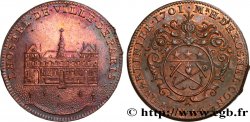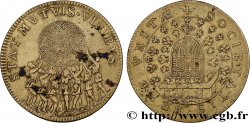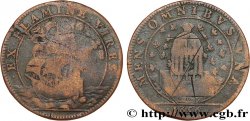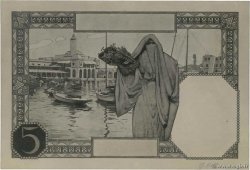220.00 €(Approx. 248.60$ | 187.00£)
Quantity
Add to your cart

Type : Doreurs argenteurs ciseleurs
Date: 1765
Metal : silver
Diameter : 28 mm
Orientation dies : 6 h.
Weight : 7,08 g.
Edge : cannelée
Rarity : R2
Catalogue references :
Obverse
Obverse legend : LUD. XV. REX. - CHRISTIANISS..
Obverse description : Buste à droite de Louis XV, signé R. FIL..
Obverse translation : Louis XV, roi très chrétien.
Reverse
Reverse legend : COMTE DES MT DOREURS ARGENTEURS CISELEURS SUR TOUS METAUX 1765.
Reverse description : Saint Éloi debout devant un autel, priant et regardant le ciel. Signature R. FIL. F.. L'autel est chargé d'objets du culte.
Commentary
Les doreurs sur métaux sont apparus au XVIe siècle avec le goût des armures dorées et damasquinées, auparavant ils étaient confondus avec les orfèvres. Leur travail consistait à dorer et à incruster des filets d’or ou d’argent dans le fer et l’acier d’où le nom de ciseleur aussi appelé damasquineur. Ce jeton fait partie de la série des Corporations.







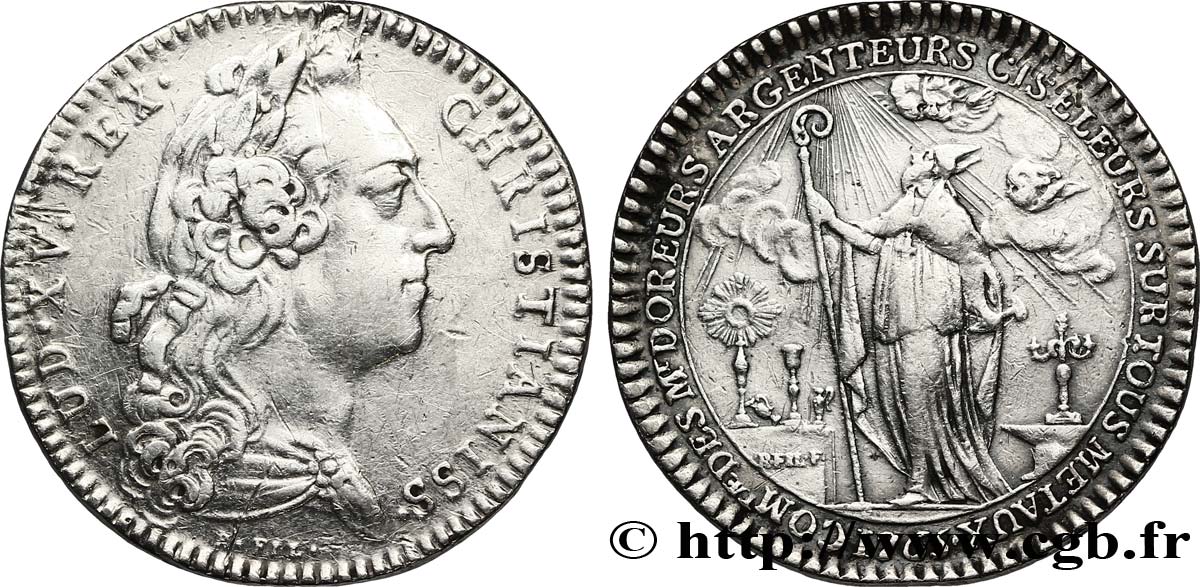
 Report a mistake
Report a mistake Print the page
Print the page Share my selection
Share my selection Ask a question
Ask a question Consign / sell
Consign / sell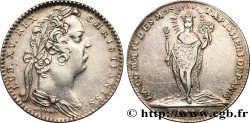
 Full data
Full data